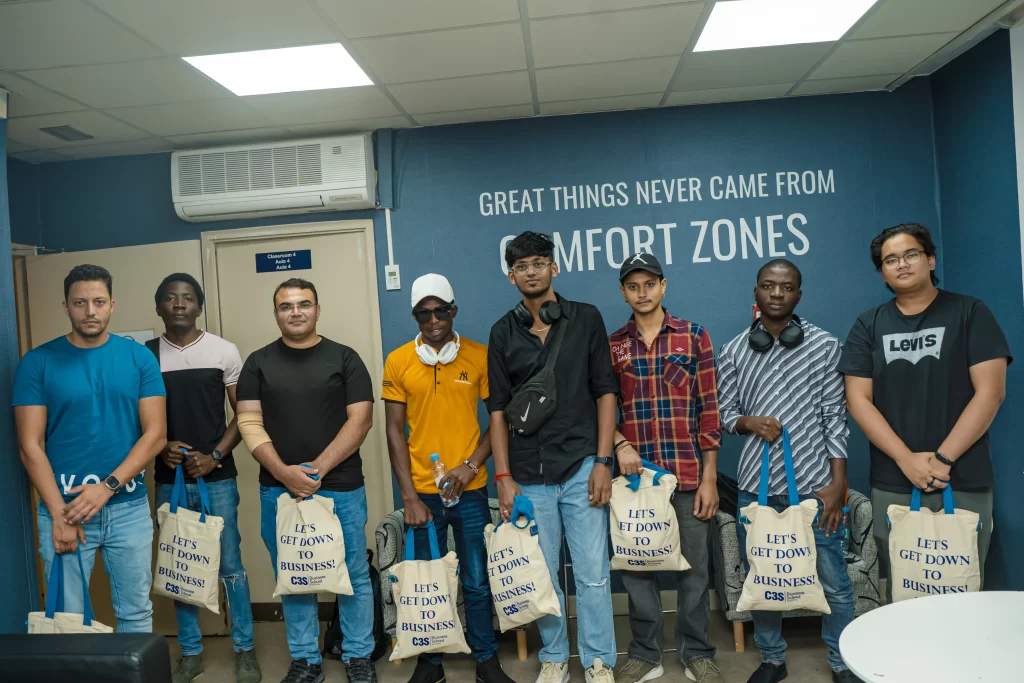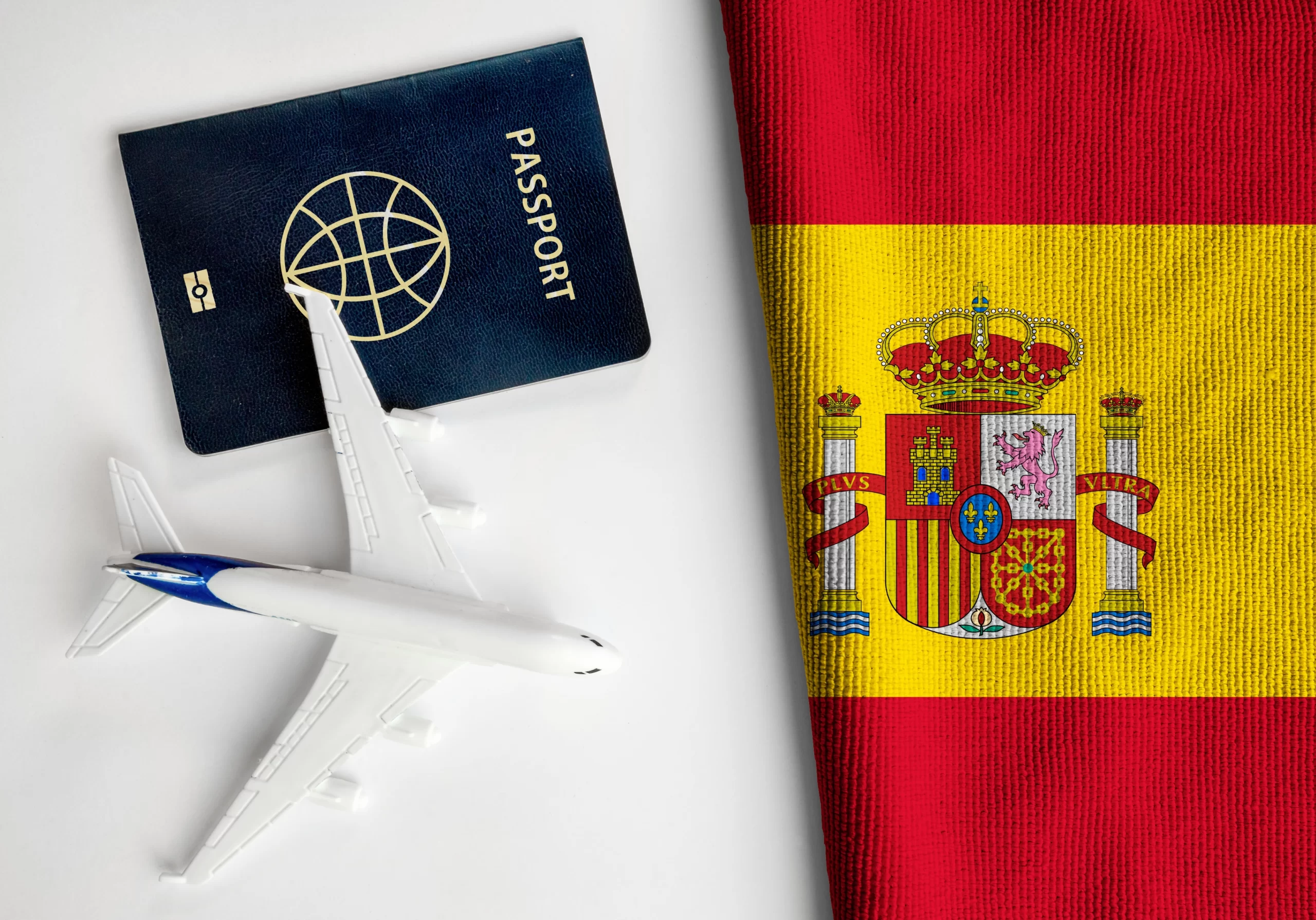Education is no longer just about memorizing facts and figures. Modern pedagogical approaches emphasize critical thinking, problem-solving, and personal growth, which are vital for success in today’s fast-paced, ever-changing business environment. C3S Business School has incorporated cutting-edge teaching methodologies into its master program in Barcelona, ensuring that students receive an education that is as dynamic and multifaceted as the industries they aim to join. With a curriculum designed around Constructivism, Inquiry-Based Learning, Integrative Learning, Problem-Based Exercises, and Reflective Strategies, C3S stands out as a business school that equips its students in bachelor and master program in Barcelona with not just theoretical knowledge, but practical, adaptable skills.
“C3S is built on the belief that education must evolve alongside the world it seeks to improve. Our students don’t just learn; they apply, reflect, and innovate,” says Hiren Raval, CEO of C3S Business School.
Constructivism: Learning as a Collaborative Process in Master Program in Spain
Constructivism is a learning theory based on the idea that individuals build their own understanding and knowledge of the world through experiences and reflection. In a constructivist classroom, students in bachelor and master program in Spain are active participants in their learning process, collaborating with their peers and drawing from their own experiences to develop new insights.
At C3S Business School, the constructivist approach is embedded in its teaching philosophy. In every master’s program, students are encouraged to interact, collaborate, and engage in discussions that help them make sense of complex concepts. For example, in master program in Spain with a focus on entrepreneurship, students don’t simply learn about starting a business; they participate in entrepreneurial labs where they collaborate in teams to create their own startups. This hands-on experience, guided by industry mentors, helps students connect theory with real-world application.
“Constructivism helps students learn by doing, which leads to deeper understanding and longer retention. This is a key component of our approach at C3S,” says Dr. Aida Mehrad, head of academics at C3S Business School.
A 2022 study by the European Education Forum found that 68% of students in bachelor and master program in Spain inclined towards constructivist learning environments reported higher retention rates and deeper understanding of course material compared to traditional lecture-based classrooms. This is evident at C3S, where students develop their knowledge through action, reflection, and collaboration—essential skills for leaders in the modern business world.
One such student, who graduated from the C3S master program in Barcelona, shared his experience: “We didn’t just memorize frameworks; we applied them in real-time projects. It felt like we were co-creating knowledge with our professors, which was far more engaging than just sitting through lectures.”
Inquiry-Based Learning: Cultivating Curiosity and Critical Thinking in Master’s Program in Spain
Inquiry-Based Learning (IBL) is a pedagogical approach that encourages students in bachelor and master program in Spain to ask questions, investigate, and create solutions based on their curiosity and interests. This method fosters a deeper understanding of subjects by engaging students in research and problem-solving rather than passive absorption of information.
“At C3S, inquiry-based learning pushes students to be curious thinkers, which is crucial for future leaders in any industry,” says Professor Xavier Puertas of C3S Business School.
At C3S Business School, Inquiry-Based Learning is central to many of the master’s programs. For example, in the Post graduate diploma in Tourism and Hospitality Management, students are tasked with developing innovative tourism solutions for sustainable development. Instead of just learning about sustainability from a textbook, students are encouraged to ask questions like, “How can we reduce the carbon footprint of tourism in Spain?” or “What new technologies can help us manage tourist flow in Barcelona during peak seasons?”
“By giving students the space to explore and investigate, we’re not only teaching them content but also helping them develop the critical thinking skills needed in today’s business world,” says Professor Eduardo Ortiz from C3S Business School.
This inquiry-driven process allows students to take ownership of their learning, resulting in more meaningful educational experiences. A 2023 survey by the European Association for Business Education revealed that 75% of employers value graduates who demonstrate strong problem-solving abilities and curiosity—traits that Inquiry-Based Learning fosters.
A post graduate C3S student in Tourism and Hospitality Management program, reflected on her experience with IBL: “The ability to research real-world problems and come up with innovative solutions was a game-changer. Our projects felt like we were making an impact, not just doing schoolwork.”
Integrative Learning: Connecting Knowledge Across Disciplines in Master’s Program in Spain
In the real world, business problems are rarely confined to a single area. A marketing challenge might have financial, ethical, and technological implications. Recognizing this, C3S Business School adopts an Integrative Learning approach, helping students in bachelor and master program in Barcelona to connect knowledge from different disciplines to solve complex, multi-dimensional problems.
For instance, in the Master’s in Business Administration, students are required to complete a capstone project that integrates knowledge from marketing, finance, operations, and strategy. This cross-disciplinary project allows students to see how different functions within a business are interconnected, reflecting the complexities they will encounter in the business world.
According to AACSB’s 2021 Global Business Education Survey, employers increasingly seek graduates who can think holistically and make connections across various business areas. At C3S, the integrative learning model ensures that graduates in bachelor and master program in Barcelona are equipped with a broader understanding of business, making them more adaptable and resourceful in their careers.
A real-life example comes from a former student who studied International Business at C3S. After graduation, she joined a big-ticket global consulting firm, where her ability to connect different business functions gave her a competitive edge. “The integrative learning model at C3S taught me to see the big picture. Whether it’s a marketing issue or a financial strategy, I know how to analyze all aspects and come up with a comprehensive solution.”
Dr. Maria Fernanda Dugarte, dean and director of institutional affairs at C3S Business School, emphasizes, “Integrative learning helps students see the interconnectedness of business functions, which is essential for adapting to the complexity of global industries.”
For example, in either Global MBA or MBA with Project Management, students complete a capstone project that integrates knowledge from marketing, finance, operations, and strategy, reflecting the complexities they will encounter in the business world.

Problem-Based Learning: Applying Theory to Real-World Challenges in Master’s Program in Barcelona
Problem-Based Learning (PBL) is another powerful pedagogical approach that C3S Business School employs to create an active learning environment for bachelor and master program in Spain. Instead of merely learning theories, students tackle real-world business problems and develop solutions using the theories they have learned in class.
In the Post Graduate Diploma Level 7 in Health and Social Care Management, for example, students work on case studies dealing with healthcare system inefficiencies, patient management challenges, or ethical dilemmas in medical practices. These problems are derived from real-life scenarios that health managers face today, allowing students to apply their knowledge in a practical context.
A 2021 Harvard Business Review article highlighted that 81% of companies seek graduates who are not just good at theory but can apply their knowledge to solve actual problems. At C3S, problem-based learning is integrated into every aspect of the curriculum, ensuring students graduate with strong problem-solving skills and real-world experience.
“We prepare our students for real-world challenges by immersing them in problem-based exercises,” says Professor Mani Tahriri, the IT faculty at C3S Business School.
In the Post graduate diploma in Health and Social Care Management, for example, students work on case studies dealing with healthcare system inefficiencies or ethical dilemmas in medical practices. These problems are derived from real-life scenarios that health managers face today.
“By solving real-world problems, students gain practical skills and a deep understanding of how to apply their knowledge,” says Dr. Fernando Velasquez Villalba, senior faculty at C3S Business School.
A graduate of the Health and Social Care Management program, praised the PBL method: “We didn’t just sit in lectures; we solved real healthcare challenges. When I entered the workforce, I wasn’t just familiar with the theory, but I knew how to implement strategies that addressed actual issues.”
Reflective Learning: Encouraging Personal Growth and Continuous Improvement in Master’s Program in Barcelona
Reflective learning is a cornerstone of personal and professional development. By encouraging students to reflect on their experiences, decisions, and actions, C3S Business School helps its students in bachelor and master program in Barcelona to build self-awareness, a crucial leadership skill.
In every master program in Barcelona, as delivered in C3S, reflective strategies are embedded in coursework, such as through reflective journals, peer feedback, and self-assessment tasks. In Global MBA program, for example, students are encouraged to reflect on their leadership styles after completing team projects, which fosters self-awareness and continuous improvement.
A 2020 report by the Association to Advance Collegiate Schools of Business (AACSB) found that reflective learning significantly enhances leadership and emotional intelligence, skills highly sought after by employers today.
“Our focus on reflective learning ensures that our students are not just academically competent but also emotionally intelligent leaders,” says Dr. Jose Bifano, visiting faculty at C3S Business School.
A student in the MBA with Project Management program, shared her experience: “C3S encouraged us to constantly reflect on our leadership decisions during projects. I learned more about my strengths and weaknesses, and how to leverage them in team settings. It wasn’t just about business acumen, but about personal growth.”
Survey Data: C3S Student Satisfaction and Career Success in Master’s Program in Barcelona
The results of C3S Business School’s pedagogical approach speak for themselves. According to a 2023 student satisfaction survey conducted by the school, 92% of students including bachelor and master program in Spain reported that the interactive, problem-solving nature of the programs significantly improved their learning experience. Additionally, 89% of students felt that the inquiry-based and reflective strategies helped them become more effective critical thinkers and leaders.
Moreover, a graduate employment survey revealed that 87% of C3S alumni secured full-time employment within six months of graduating, with many of them citing practical, real-world learning experiences as key factors in their career readiness.
“By continuously innovating our teaching approaches, we ensure that our students are prepared for both today’s and tomorrow’s business challenges,” concludes Bela Raval, admissions head of C3S Business School.
Conclusion: C3S Business School’s Innovative Pedagogical Edge in Master’s Program in Barcelona
In an age where business education must go beyond the traditional classroom model, C3S Business School in Spain has created a dynamic, innovative, and holistic learning environment for students in the bachelor and master program in Barcelona. By blending Constructivism, Inquiry-Based Learning, Integrative Learning, Problem-Based Exercises, and Reflective Strategies, C3S equips its students not only with business knowledge but also with the critical thinking, problem-solving, and reflective skills necessary for thriving in a globalized, complex world.
For students seeking a master’s program that challenges them to think, grow, and solve real-world problems, C3S Business School stands as a leader in business education innovation.
As Dr. Daba Chowdhury, associate professor at Christ Church Business School, Canterbury, notes, “C3S Business School’s emphasis on holistic learning truly sets its students apart, preparing them not just for jobs, but for leadership.”




